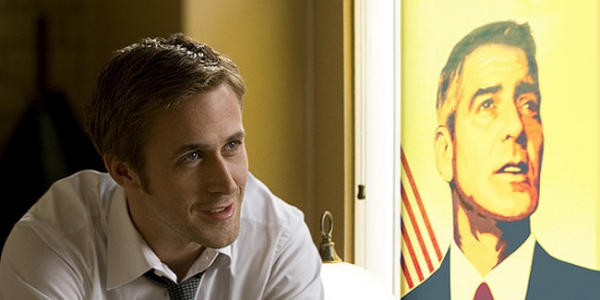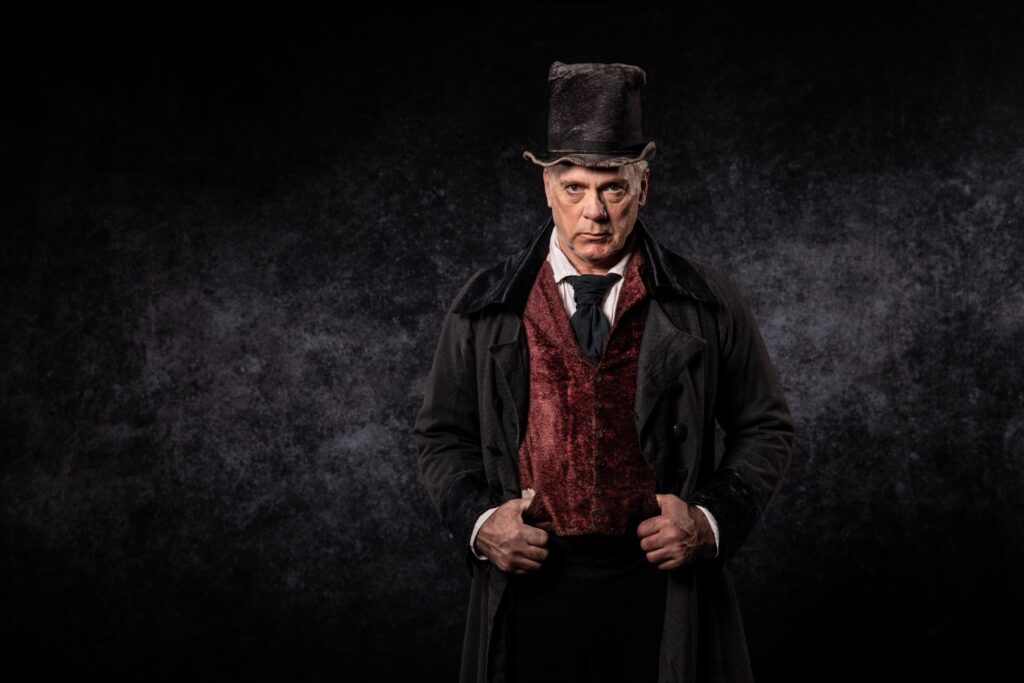The Ides Of March is George Clooney’s fourth film as a director (following Goodnight, And Good Luck, Confessions Of A Dangerous Mind, etc) and again shows that he chooses interesting and meaty subject matter. Set against the background of a Democratic primary election, the film is based on Beau Willimon’s stage play Farragut North. The name itself is derived from a Washington Metro station that is close to the offices of powerful lobbyists.
Clooney and his regular collaborator and producer Grant Heslov have adapted the play and reshaped it for the screen, creating a modern morality tale about the ongoing struggle between idealism and corruption. They have suffused the material with plenty of intrigue and moral ambiguities that perfectly reflect the temper of the times, but they can’t completely disguise its theatrical origins.
Clooney himself plays Pennsylvania Governor Mike Morris, a suave, charismatic Clintonesque politician who is hoping to win the Democratic nomination for the Presidential race. He is running against Senator Pullman, a slick and veteran conservative politician from the heart of the Bible belt. The Ohio primaries hold the key to deciding the next Democratic candidate.
Managing Morris’ campaign is the shrewd adviser Paul Zara (Philip Seymour Hoffman) and his savvy, ambitious and handsome young media liaison Stephen Meyers (Ryan Gosling). Zara and Meyers will stop at nothing to help Morris secure the primary in order to keep his hopes of getting the Democratic nomination alive. But when Meyers is courted with a generous offer by Tom Duffy (Paul Giamatti), the manager of Morris’ opponent, things begin to go wrong for him. But when Meyers discovers that Morris has feet of clay, his fall from grace begins. And the questionable suicide of Molly Stearns (Rachel Evan Wood), a pretty young intern, also threatens to overshadow Meyers’ ambitions.
The Ides Of March reflects Clooney’s own passion for politics, and offers some fascinating insights into the rough and tumble of politics and the complex American electoral college system and how it operates behind the scenes. The dialogue is punchy and rings true, and there is a timeliness and sense of immediacy to the whole thing.
The film features a top cast, who are all at the top of their game in portraying these cynical, embittered, amoral and ambitious characters. Clooney uses his acting experience to good use here in eliciting strong performances from his ensemble.
Morris is certainly charismatic and likeable, but there is a coldness, and a ruthless streak beneath the surface, and Clooney is superb in portraying this ambiguity. His performance is so effortless that he makes it look easy, and it’s no wonder that he often invites comparisons to Cary Grant. Gosling delivers another wonderfully solid, intelligent and characteristically engaging performance. He has a strong presence and commands the screen as the narcissistic and nakedly ambitious Meyers. The role was originally intended for Leonardo Di Caprio, who remains attached to the project as one of the executive producers.
Both Giamatti and Hoffman bring their usual intensity and world-weary quality to their flawed and manipulative characters. And Marisa Tomei, whom many think was unworthy of her Oscar, is very good in a small role as Ida Horowicz, a Washington journalist eager for scoops and unafraid to ask tough questions.







